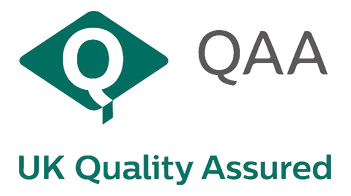Request your Prospectus
Want to find out more about the wide range of courses, student support and more available for students at University Centre Leeds?
Request your University Centre Leeds Prospectus now.

Are you passionate about biology and chemistry, especially relating to human health? Explore the fascinating world of Biomedical and Pharmaceutical Sciences with this practical degree.
You’ll gain extensive hands-on experience with laboratory-based learning and a wide array of industry-standard equipment and benefit from a small-group teaching environment, giving you the personalised attention and support to succeed.
You will have a lot of flexibility over how you organise your time as full-time students are only required to attend the University Centre for 2 days per week.
This degree is particularly appealing if you love practical work and are keen to develop skills to become highly employable in the biomedical and pharmaceutical industries.
Entry Requirements: 32 UCAS Tariff Points from two A-levels (or equivalent qualifications)
International qualifications: International qualifications will be assessed against these criteria
IELTS: IELTS 6.0 with no less than 5.5 in any component.
Mature applicants: University Centre Leeds welcomes applications from mature* applicants who may not have met the academic criteria, but who can demonstrate a wealth of experience in their chosen field. Candidates in this category and otherwise are likely to be interviewed to assess their suitability for the course and may be asked to provide a portfolio of evidence to support their application.
*21 years and over at the start of the course
RPL claims: The course structure actively supports claims for Recognition of Prior Certified Learning (RPCL) or Recognition of Prior Experiential Learning (RPEL).
Part Time: Students for part time study are required to hold a level 3 qualification or the equivalent experience in a relevant subject.

About the course
Your initial Foundation Year will ensure you develop a solid foundation to build your knowledge and expertise in Biomedical and Pharmaceutical Sciences.
You’ll gain essential knowledge in bioscience, life sciences, and chemistry, coupled with a solid foundation in laboratory skills. Throughout the degree, you'll engage with the core aspects of biochemistry, pharmacology, genetics, and immunology while enhancing your expertise in data analysis, scientific investigation, and research skills.
This course will enhance your ability to analyse and interpret scientific data using cutting-edge techniques typically reserved for postgraduates or researchers at traditional universities.
You'll gain hands-on experience applying laboratory skills in real-world settings, working with advanced equipment such as spectrometers, chromatography instruments, and molecular analysis software.
Additionally, you'll develop strong communication skills to collaborate effectively with peers and industry professionals, including expertise in presentation, teamwork, and project management. Through guest lectures, company visits, and work-related learning modules, you'll gain a clear understanding of industry expectations.
The course also focuses on building essential core competencies, including numeracy, problem-solving, time management, and independent research—key skills for pursuing a scientific career or further study.
*This course is subject to validation by Luminate Education Group

If you would like to apply for to study full time, please do so via UCAS.
The institution code for University Centre Leeds is L21.
The application fee for applying through UCAS is £28.50, unless you are eligible for Free School Meals (FSM).
The modules listed below are for the academic year 2025/26 and represent the course modules at this time. Modules and module details (including, but not limited to, location and time) are subject to change over time.
Modules may include:
Fundamentals of Biology – Mandatory (20 credits)
You’ll be introduced to fundamental topics in Biology providing a foundation for further study in several areas of Bioscience and Life sciences. You’ll also experience important laboratory procedures.
Further Biology – Mandatory (20 credits)
This module builds on the concepts and skills from Fundamentals of Biology, providing an opportunity for you to expand your experience of laboratory activities.
Fundamentals of Chemistry – Mandatory (20 credits)
You’ll cover fundamental concepts in chemistry as well as experience chemical phenomena and practice using key pieces of equipment in the laboratory.
Further Chemistry – Mandatory (20 credits)
This module will provide an opportunity for further experience of important laboratory techniques, especially in the synthesis, purification and analysis of compounds. You’ll learn important topics that have relevance in both chemical and biological contexts.
Foundation Mathematics - Mandatory (20 credits)
All mathematical and statistical skills necessary to succeed in Biology and Chemistry will be covered in this module.
Academic Skills – Mandatory (20 credits)
You’ll develop the key academic skills required for success in the Foundation Year and beyond. Important academic and scientific conventions will be introduced, enabling you to produce work of a professional standard.
STEM Toolkit – Mandatory (20 credits) You’ll acquire and develop a range of skills including transferable, personal, interpersonal, numerical, academic and subject-specific skills that will enable you to succeed in science as part of this module.
Biomolecules and cells - Mandatory (20 credits)
This module contains the knowledge and understanding of the major biomolecules and structures which occur inside all cells. You’ll explore cells and cellular organelles, examining in detail how these work as entities as well as how they work together for whole cell function.
Anatomy and Physiology - Elective (20 credits)
This module explores the structure and function of the human body and its systems. You’ll explore how your body is changed by disease processes. This would appeal to those seeking employment in the biomedical sector.
Physical and Inorganic Chemistry - Elective (20 credits)
This module covers a range of fundamental concepts in chemistry and introduces topics that will be important if you hope to pursue a career that requires significant knowledge of chemistry. You’ll be introduced to key ideas and theories, as well as practical skills.
Integrated Practical Skills - Mandatory (20 credits)
This module covers a broad range of fundamental techniques in chemistry and biology. You’ll learn practical skills that are fundamental to working in any commercial or academic laboratory.
Data Analysis - Mandatory (20 credits)
This module aims to develop knowledge of statistical techniques and procedures to support academic learning in scientific subjects.
Biochemistry – Elective (20 credits)
This module aims to deliver knowledge and understanding of the major biochemical processes which occur inside all cells. You’ll explore complex biochemical pathways to determine how they work and contribute to cellular function.
Organic Chemistry - Elective (20 credits)
This module will explore the chemistry of, and methods of identifying, common organic compounds as well as give you the chance to experience some synthetic and analytical practical activities.
Pharmacology and Therapeutics (20 credits) – Mandatory (20 credits)
This module covers the pharmacology of the major body systems and offers a perspective on the therapeutic interventions in modern medicine. You’ll complete this module with the necessary knowledge, skills and understanding to enter careers in medical science, pharma or related industries.
Microbiology and Biotechnology - Elective (20 credits)
This module develops the core knowledge about microorganisms and their increasingly important role in industrial processes across a range of applications including the pharmaceutical and biotechnology sectors.
Analytical Chemistry – Elective (20 credits)
In this module you’ll get to use a range of equipment such as spectrometers, photometers and chromatograms to perform procedures that are common in analytical labs such as food testing, environmental monitoring or forensics services, as well as quality control departments in industries such as pharmaceutical companies.
Work Related Learning - Mandatory (20 credits)
Achievement of the module requires a minimum of 20h documented work experience. In addition to the taught elements, you’ll complete a series of lab-based technical competencies such as the use of the autoclave and sterile technique amongst others.
Scientific Investigation - Mandatory (20 credits)
You’ll have the opportunity to plan and practically investigate a topic of your choice, using the practical skills gained during the first year, and acquiring new laboratory skills. At the end of this module, you will be able to confidently use industry-standard laboratory equipment such as UV-Vis spectrophotometers, rotary evaporators, autoclaves, micropipettes, electrophoresis rigs, centrifuges and chromatography columns.
Immunology - Elective (20 credits)
This module aims to develop your knowledge of how the immune system works in addition to demonstrating the importance of immunoassays and specific reagents in science and medicine. You’ll develop knowledge of non-specific and specific works immunity, how function changes in disease states and how this knowledge is used and applied practically.
Genetics - Elective (20 credits)
This module develops the knowledge and understanding needed to analyse and evaluate the inheritance of physical properties passed between generations as well as gives insight into genes that affect biological processes in human and bacterial cells.
Medicinal Chemistry – Elective (20 credits)
This module explores the ways in which drug molecules cause their effects in the human body. You’ll study how medicinal chemists design new drugs or alter existing ones to improve their properties. This will include the use of computer software to make predictions about molecular properties based on their structures. You’ll also get the chance to learn to synthesise some medicinal compounds in our laboratories.
Undergraduate Research Project – Mandatory (40 credits)
This module allows you to develop a laboratory-based research project in a subject of your own interest. You’ll receive support from tutors as you research your chosen topic and apply your practical skills in our well-equipped laboratories.
Research Skills - Mandatory (20 credits)
You’ll learn valuable skills that underpin scientific research, as well as developing your understanding of scientific writing and journalism.
Genetic Mechanisms of Disease - Elective (20 credits)
In this module you’ll have the opportunity to explore how human disease, treatment and diagnoses are made using modern technologies such as proteomics and genomics.
Drug Synthesis - Elective (20 credits)
Learn to design syntheses of new molecules that can be used in the preparation of novel drugs or to improve existing synthesis routes for existing compounds. This module will cover the theoretical strategies used by synthetic chemists in working out how to make molecules as well as allowing you to improve your laboratory techniques as you perform your own syntheses of several compounds.
Recombinant Technology - Elective (20 credits)
Through study of this module, you’ll advance your modern biological knowledge relating to informatics, gene therapy and knowledge of rare disorders.
Microbial Pathology - Elective (20 credits)
You’ll investigate the mechanisms of pathogens relating to the cause of infectious disease and the identification of microbial infections.
Pharmaceutical Analysis – Elective (20 credits)
This module will allow you to gain hands-on experience with a range of analytical and purification techniques, and to develop your skill at using industry-standard instruments. You’ll learn how to process data to ensure accurate determinations of the identity, purity and quantity of substances present in medicinal formulations.
Natural Product Preparation – Elective (20 credits)
This module will introduce students to techniques used to extract and synthesise chemicals found in living organisms. The module will cover some medicinal chemistry of compounds that are derived from natural sources.
Throughout this course you will:
The course features a blend of regular practical assessments, including quizzes and tests, laboratory reports, presentations, case studies, and a small number of examinations. Practical assessments will allow you to showcase your lab skills and knowledge, while group projects and research reports will develop your teamwork and academic writing capabilities. Feedback throughout the degree will support your growth and help prepare you for a career in modern science.
All classes will take place at our new Mabgate campus, which will feature three dedicated teaching labs: one for biology, one for chemistry, and one for biochemistry. Students also benefit from specialised industry-standard facilities, including:
Our focus on hands-on experience allows you to utilise equipment typically reserved for researchers at traditional universities, giving you a competitive edge in the workforce.
Entry Requirements: 32 UCAS Tariff Points from two A-levels (or equivalent qualifications)
International qualifications: International qualifications will be assessed against these criteria
IELTS: IELTS 6.0 with no less than 5.5 in any component.
Mature applicants: University Centre Leeds welcomes applications from mature* applicants who may not have met the academic criteria, but who can demonstrate a wealth of experience in their chosen field. Candidates in this category and otherwise are likely to be interviewed to assess their suitability for the course and may be asked to provide a portfolio of evidence to support their application.
*21 years and over at the start of the course
RPL claims: The course structure actively supports claims for Recognition of Prior Certified Learning (RPCL) or Recognition of Prior Experiential Learning (RPEL).
Part Time: Students for part time study are required to hold a level 3 qualification or the equivalent experience in a relevant subject.
Upon completion of this degree, you could work in NHS, government, university, college or private laboratories (e.g. in companies developing and testing new medicines; forensics labs or food testing labs) without additional qualifications. Some working in NHS labs may wish to become biomedical scientists, which will require further study.
You could also progress to further study such as postgraduate entry into Medicine, Dentistry Associate Physician Diplomas, specialist master’s degrees or research qualifications (PhD).
Teaching, which will require further study such as a PGCE, is a popular career option. And non-scientific roles can include marketing, accountancy and legal careers - which may also require further study.
For the latest version of the programme specifications for this course please click here.
For the latest version of the University Centre Leeds regulations please click here.
All of the necessary chemicals and equipment (including personal safety items such as labcoats and safety glasses) will be provided at no additional cost.
Applications are open for 2025 entry.
To apply directly to study at University Centre Leeds as an international applicant, please see the direct apply link further up this page or visit our 'How to apply' page and complete the steps.
You can also apply through UCAS.
For more information please visit our 'How to apply' page.
Course fees for Undergraduates are £14,000 (GBP)
Scholarship available £3,000 (GBP) all courses.
For more information about fees and scholarships, please click here.
Please see our entry requirements page for additional requirements as an international student
International students will study 5 additional hours on top of the regular timetable.
For more information about visa and immigration, please click here.
Hear directly from our students at University Centre Leeds as they share their unique journeys, challenges, and achievements. In this video, they discuss what makes learning here special, from supportive tutors and hands-on learning experiences to the close-knit community that fuels their passion and ambitions.
Discover how University Centre Leeds has helped shape their confidence, skills, and career paths, bringing their goals within reach in a vibrant and supportive environment.
Our online and in-person Open Events give you a chance to hear from tutors, discover the range of student support available, and find out for yourself why University Centre Leeds has the highest rating for student satisfaction in the city (NSS 2024).
Open DaysWant to find out more about the wide range of courses, student support and more available for students at University Centre Leeds?
Request your University Centre Leeds Prospectus now.







